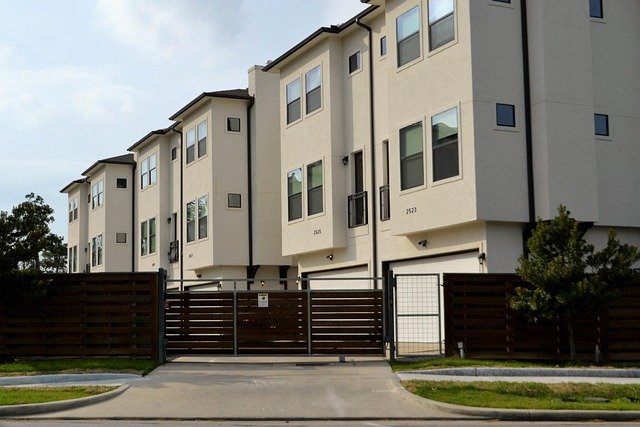Understanding Modular Construction and Factory-Built Housing
Factory-built housing has transformed the residential construction industry by offering faster build times, cost-effective solutions, and customizable designs. These structures are manufactured in controlled environments before being transported and assembled on-site, combining efficiency with quality craftsmanship. Whether you're considering a compact starter residence or a luxury dwelling, understanding the different types, suppliers, and cost factors can help you make an informed decision about this modern housing alternative.

The housing market has seen a significant shift toward factory-built construction methods in recent years. These residences are manufactured in controlled factory environments before being transported and assembled at their final locations. This approach reduces construction time, minimizes weather-related delays, and often results in more consistent quality control compared to traditional building methods. Factory-built housing ranges from simple single-room structures to sophisticated multi-story residences with high-end finishes.
What Are Modular Construction Homes?
Modular construction homes represent a specific category of factory-built housing where complete sections or modules are manufactured in a controlled setting. Each module includes walls, flooring, ceilings, electrical systems, and plumbing. Once transported to the building site, these modules are joined together to create a complete residence. The modular approach allows for significant customization while maintaining the efficiency benefits of factory production. These structures must meet the same building codes and standards as site-built houses, ensuring structural integrity and safety. Many homeowners appreciate that modular construction can reduce overall building time by 30 to 50 percent compared to traditional methods.
Understanding Prefab Homes From China
China has become a major player in the global factory-built housing market, offering a wide range of options from basic structures to sophisticated designs. Chinese manufacturers have invested heavily in production technology and quality control systems to meet international building standards. These suppliers often provide competitive pricing due to economies of scale and lower labor costs. However, buyers should carefully verify that products meet local building codes and regulations in their destination country. Shipping logistics, import duties, and local assembly requirements are important considerations when sourcing factory-built structures internationally. Working with experienced importers or consultants familiar with cross-border construction projects can help navigate these complexities.
Exploring Prefab Homes Suppliers in China
Several established manufacturers in China specialize in exporting factory-built housing to international markets. These suppliers typically offer catalog designs as well as custom options to meet specific client requirements. Quality varies significantly among manufacturers, making due diligence essential. Prospective buyers should request certifications, review previous projects, and if possible, inspect factory facilities before committing to large orders. Many reputable suppliers maintain quality management systems certified to international standards such as ISO 9001. Communication regarding specifications, materials, finishes, and delivery timelines should be documented clearly to avoid misunderstandings. Some suppliers also provide installation support or partner with local contractors to ensure proper assembly.
How Much Do Luxury Prefab Homes Cost?
Luxury factory-built residences represent the premium segment of the modular housing market, featuring high-end materials, custom designs, and sophisticated amenities. These structures can include features such as floor-to-ceiling windows, designer kitchens, spa-like bathrooms, smart home technology, and sustainable building systems. Cost factors include the size of the residence, complexity of the design, quality of materials and finishes, site preparation requirements, and geographic location. Foundation work, utility connections, landscaping, and permits add to the total investment beyond the base structure cost.
| Home Type | Size Range | Estimated Cost Range | Key Features |
|---|---|---|---|
| Basic Factory-Built Home | 600-1,200 sq ft | $50,000-$120,000 | Standard finishes, simple layout, essential systems |
| Mid-Range Modular Home | 1,200-2,000 sq ft | $120,000-$250,000 | Custom options, quality materials, multiple bedrooms |
| Luxury Modular Home | 2,000-4,000+ sq ft | $250,000-$600,000+ | Premium finishes, custom design, high-end appliances |
| Container Home | 160-640 sq ft | $30,000-$100,000 | Compact design, modern aesthetic, portable options |
| Tiny Modular Home | 100-400 sq ft | $20,000-$80,000 | Minimalist living, efficient use of space, mobility |
Prices, rates, or cost estimates mentioned in this article are based on the latest available information but may change over time. Independent research is advised before making financial decisions.
Advantages of Choosing Factory-Built Housing
Factory-built residences offer numerous benefits that appeal to modern homebuyers. Construction timelines are typically shorter because factory production continues regardless of weather conditions while site preparation occurs simultaneously. Quality control is often more consistent in factory settings where skilled workers use standardized processes and materials are protected from the elements. Cost predictability improves as factory production reduces waste and allows for more accurate budgeting. Environmental benefits include reduced construction waste, potential for using sustainable materials, and often better energy efficiency through precise construction methods. Design flexibility has expanded significantly, with many manufacturers offering extensive customization options that rival traditional construction. The stigma once associated with factory-built housing has largely disappeared as design quality and construction standards have improved.
Important Considerations Before Purchasing
Before committing to a factory-built residence, several factors require careful evaluation. Local zoning regulations and building codes may restrict or regulate modular construction in certain areas. Land acquisition and site preparation costs can vary significantly based on location, terrain, and existing infrastructure. Financing options for factory-built housing may differ from traditional mortgages, though this is changing as modular construction becomes more mainstream. Resale value considerations depend on local market conditions and the quality of construction. Transportation logistics and assembly requirements should be discussed thoroughly with suppliers and local contractors. Warranty coverage and after-sale support vary among manufacturers and should be clearly understood before purchase. Long-term maintenance requirements are generally similar to traditional residences but may involve specific considerations for modular connections or specialized materials.
Factory-built housing continues to gain acceptance as a viable alternative to traditional construction methods. With careful planning, thorough research, and attention to quality and compliance, these structures can provide comfortable, attractive, and cost-effective housing solutions for a wide range of budgets and preferences.




